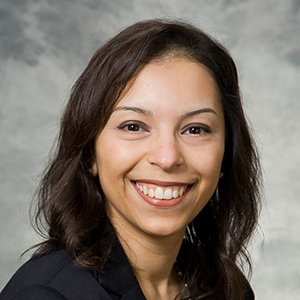On February 13, 2024, Wisconsin Public Radio (WPR) host Jill Nadeau interviewed Mai Elezaby, MD about risk factors for breast cancer as well as updated screening recommendations, early detection and treatment. In addition, Dr. Elezaby answered listeners’ questions on the risk benefit ratio related to radiation exposure, second opinions, and when to halt annual screenings.
“We know some of the risk factors that are notable in research,” Dr. Elezaby explained and identified family history being a significant one. “It is also important to note that up to 75% of women who get breast cancer don’t have a recognizable family history.”
Although that statistic can be startling, Dr. Elezaby continued “There are ways we can improve our risks for breast cancer and improve the chance of finding it early as with screening mammography.”
The United States Preventative Services Task Force (USPSTF) are in the process of updating their screening recommendations, which is currently in draft form. “Now they have acknowledged that starting screening at 40 years and screening every other year really catches the cancers early especially for some of our various population groups, for example Black women,” Dr. Elezaby said. “That provides a higher chance of finding cancers early and mitigating some of the cancer deaths especially by breast cancer in that patient group.”
Dr. Elezaby also shared advancements in the field. “The most widely adopted technological advancement in Breast Imaging over the last few years has been what we call Digital Breast Tomosynthesis AKA 3-D technology,” Dr. Elezaby stated. “This has definitely allowed us to see through the breast tissue and help find cancers early and also prevent having patients come back unnecessarily for extra views.” Other extremely important advancements include advancements in MRI techniques and personalized risk calculation to guide screening choices.
The 30-minute interview covered a lot of topics and can be streamed on WPR’s site.